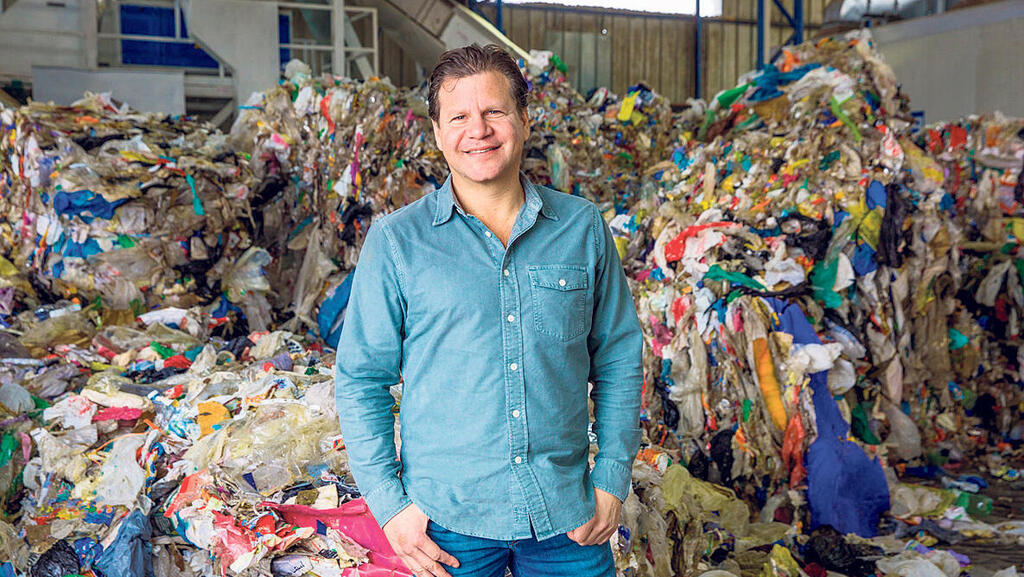
Impact Tech
UBQ Materials: The alchemist turning waste into reusable plastic
The startup collects garbage from dumps and turns it into useful products
From volunteering apps that connect people with nonprofits, waste that turns into reusable plastic, an AI platform that analyzes CT scans, and robots that save the bees and the food chain, there are plenty of Israeli startups that are focused on doing good.
You can read Part 1 of the Impact Tech series here
When UBQ Materials started out in 2012, its founders Yehuda Pearl (co-founder of American-Israeli hummus brand Sabra), lawyer and El Al pilot Eran Lev, and serial climatech entrepreneur Jack (Tato) Bigio, wanted to try their hand at reducing environmental pollution around the world. Simultaneously, their initiative was also proposed by the Environmental Ministry, which called to cut down the amount of waste buried underground by 20%. Their method? Turning waste into reusable thermoplastic, which the company calls “UBQ.”
The company intercepts waste that is headed to landfills, redirecting it to UBQ’s facilities at Kibbutz Tze'elim on Israel’s southern border. The facility then separates metal from glass, and takes the leftovers - whether they be food scraps, PVC plastic, cardboard, or paper - and turns it into reusable “UBQ” plastic. It then sells this version to a variety of industries at a price similar to traditional plastic that is made from fossil fuels byproducts.
The material can be used to make a variety of products. For example, McDonald’s uses the material to build its food trays. It can also be used to make hangars, car parts, and other items. “It’s a material that can be used in place of regular plastic in any type of industry,” explained Bigio. UBQ is currently focused on expanding its business internationally. Some of its customers include large world corporations like Mercedes Benz, Mainetti, and Arcos Dorados Holdings (a company that owns McDonald’s based in the Latin Americas). In Israel, UBQ works with the Keter Group and Carmel Olefins Ltd. from the Bazan Group.
Related articles:
UBQ is a shortening of the word ubiquitous, and offers a solution to treat the two billion tons of homemade waste that goes unrecycled every year, and is buried in the ground or is dumped without supervision in rivers and oceans. According to recent research, this type of waste is the number three culprit of human-caused methane emissions.
Each ton of UBQ plastic reduces 12 tons of carbon dioxide emissions over a 20-year period, and reducing carbon emissions is considered an important goal for many. In that sense, the company’s product provides an immediate response to one of the world's main environmental issues.
"No other company knows how to turn waste into thermoplastic material," Biggio told Calcalist. "This material prevents waste from ending up in landfills and causing environmental damage.
The world is looking for eco-friendly materials and we’ve proposed our solution at the right time. That's why all the big companies want to work with us. Our material is based on research conducted by Israeli institutes.”
The company completed a $170 million funding round, led by TPG Rise, TPG’s global impact investing platform, last December and is in the process of establishing a new plant in the Netherlands, which is expected to start operating in a year.